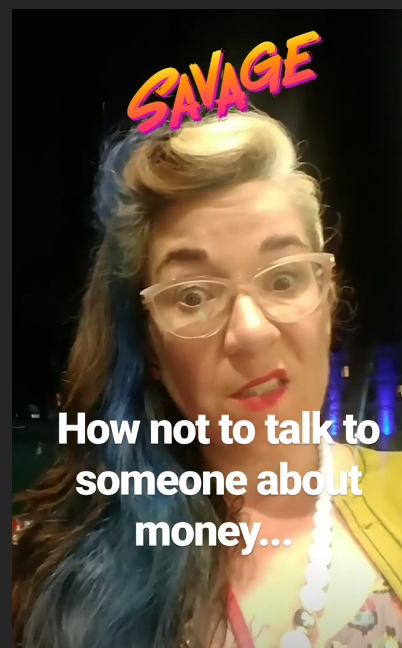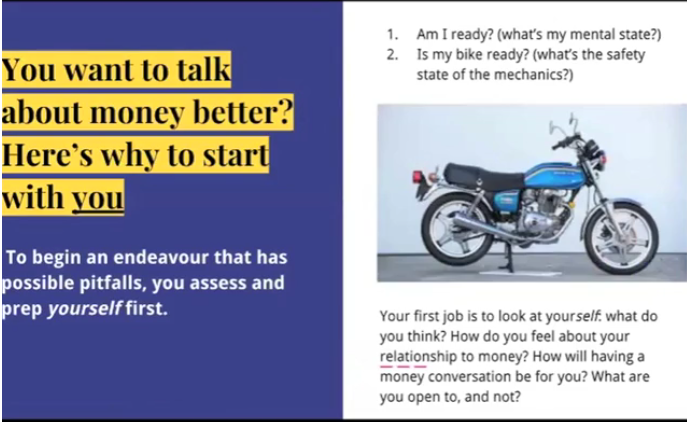I’ll never forget it: I was 28, living in an apartment that was not quite directly under a train trestle, and working 2 part time jobs + running a freelance biz.
Life was pretty fabulous even though I had like $40 max in my wallet on a flush day. I got around a lot, and that’s why I found myself at a party one night where, after I’d mentioned I had more clients than I could count on one hand, someone had the guts to say to me:
“Oh, I mean…I figured you had a trust fund cuz you seemed so relaxed about money.”
I swear I saw red. I was so upset!
I, working my 17 stupid tiny gigs and hourly jobs, had the opposite of a trust fund: I had a trust (in capitalism) DEFICIT.
I just also happened to have hustle and mad determination. And – crucially – an unwavering commitment to NOT let my, uhm, deficits, get me down. Hell no!

It stuck with me for weeks afterwards though: why did she say that? What about my ragged diva vintage indicated wealth? What gave her the courage to just up and say it?!
I took away a few things from that lesson:
- You literally have no idea what other people are thinking or what’s gonna come out their mouths at any moment
- You literally have no idea how much money other people do or don’t have
- There are lots of people with trust funds in NYC (and everywhere)
After a lot of thinking: she got me wrong but I respected that she at least said it.
How many times are you thinking something about someone elses’ money reality and don’t say anything?
Soooooo then, how many times are you getting it wrong? How many times are other people wrong about YOU?
This is not a story about how it’s bad to have a trust fund and noble to have a deficit. Fuck that thinking.
No, this is about how when we get other people wrong, it sticks.
I was and probably still am a little mad because I am deeply connected to my working-class identity and family, and it was JARRING to hear otherwise read onto me.
That’s why it was so awkward when I did it to someone else myself, a few years later.
With a former partner, I once said something to them like, “I get it … you’ve got working class teeth like me!”
(I was feeling some real dentist deficit solidarity that day.)
They looked at me, blinked, and said “…Um. I’m not working class. It’s just that my parents were still paying off medical school when I woulda had braces.”
BOY was I mad.
At myself for making an assumption about their background — an assumption I could fully have not made, and just asked, but I didn’t. I just went with my story based on a shaky inference… kinda like that woman a few years back had done to me.
Whose fault is it that I never freaking asked and just read my own interpretation onto them? Mine, dudes and dudettes. Not how you want to come to know someone you love, believe me.
Look, I know it’s not always the most elegant conversation to have: but real talking with your boo, your besties, and your collaborators about money is way less awkward than the assumptions and mistakes that are going on in the background.
Once revealed, that partner and I got to have a really solid conversation, and ground our relationship in ways that let us acknowledge class difference. But, important: I had to get hella ready and we had to step through the work. There’s no quick fix, but there are some really cool outcomes.
I share exactly what that looked like, and give some other case studies and examples in the Partners Make Peace and Plans With Money Toolkit e-course.
Grab the course, or whole workbook on how to be grounded, self-reflective, and create intentional conversations with people about money.
A Partners + Money toolkit is available!
Partners Make Peace and Plans With Money is an online toolkit you can use to work with others on money!
